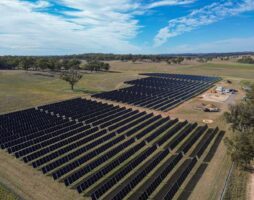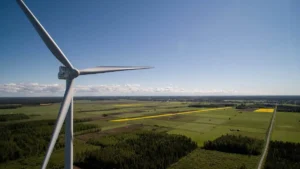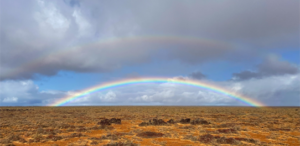Former Liberal prime minister Malcolm Turnbull famously described Coalition leader Peter Dutton as a “thug”. That description appears particularly apt in Dutton’s nuclear power plans.
The Coalition’s nuclear project is opposed by state Labor governments in each of the five states being targeted. Victoria, NSW and Queensland have laws banning nuclear power. The Labor governments in SA and WA may follow suit if they think state legislation will give them some legal protection, or any political advantage.
Could a Dutton government override state laws banning nuclear power? Anne Twomey, a Sydney University Professor Emerita with lengthy experience teaching and practising in constitutional law, argues that states probably could not prevent the Commonwealth establishing a nuclear power plant, nor could they prevent necessary associated operations such as transmission lines and nuclear waste transport.
Would a Dutton Coalition government attempt to override state opposition to nuclear power plants? Almost certainly it would. Nationals leader David Littleproud said in March that “if the Australian people vote for us that’s a fair indication to premiers that they should get out of the way”.
Coalition and Labor federal governments have pursued attempts to impose a national nuclear waste dump in SA and the NT despite state/territory laws banning such facilities. Those attempts have all failed, largely due to community opposition led by affected Aboriginal Traditional Owners.
Legal challenges helped stop three of the four proposed nuclear dump sites — Woomera (SA) under the Howard government, Muckaty (NT) under the Abbott government, and Kimba (SA) under the Morrison and Albanese governments. But the legal difficulties could have been overcome if the government of the day was ruthless enough and wasn’t suffering too much political pain because of its racist, undemocratic thuggery.
What about the companies who own the sites being targeted by the Coalition for nuclear power plants, and who have their own multi-billion dollar plans to develop their own clean energy industrial hubs based around renewables. Well, they can get stuffed too.
Dutton hasn’t bothered to consult these companies, but he has sought legal advice. This is what he said yesterday:
“We will work with the companies, the owners of the sites. If we find a situation where we apply a national interest test and we require that site to be part of the national grid, then the legal advice that we have is that the Commonwealth has ample power to compulsorily acquire that with ample compensation.”
According to energy minister Chris Bowen, six of the owners of the seven targeted sites have ruled out agreeing to nuclear power reactors on their land.
The Coalition also hasn’t bothered to consult communities around the sites targeted for nuclear reactors. And, like state governments and the owners of the targeted sites, the wishes of those communities will also be ignored.
Nationals deputy leader Perin Davey made the mistake of saying that the Coalition would not impose nuclear power plants on communities that were adamantly opposed.
She was corrected by Littleproud, who said: “She is not correct and we made this very clear. Peter Dutton and David Littleproud as part of a Coalition government are prepared to make the tough decisions in the national interest.”
Likewise, Dutton said: “Perin I think made a mistake yesterday as everybody does from time to time … We’ve identified the seven locations and we believe it’s in the community’s interests and the national interest to proceed.”
Democracy is for wimps, apparently, and for traitors who oppose the ‘national interest’ as Comrades Dutton and Littleproud see it.
All this stands in stark contrast to a 2019 parliamentary inquiry led by current shadow energy minister Ted O’Brien. The Committee’s report was titled ‘Not without your approval: a way forward for nuclear technology in Australia’.
O’Brien said in 2019 that a future government should only proceed with nuclear power on the condition that it make “a commitment to community consent as a condition of approval for any nuclear power or nuclear waste disposal facility”.
He also waffled on about “maintaining a social license based on trust and transparency” and putting the Australian people “at the centre of any approval process”.
That was then, this is now. The ‘national interest’ is at stake.
Prof. Anne Twomey notes that the Dutton government would need to get legislation through Parliament, including the Senate, both to repeal federal laws banning nuclear power and also “to provide any necessary legal support and protection for a nuclear power industry in Australia”.
An uncooperative Senate could block Dutton’s nuclear power plans, but could not stop him expanding the use of fossil fuels and derailing the renewable energy transition.
Dr Jim Green is the national nuclear campaigner with Friends of the Earth Australia and co-author of a new ACF report, ‘Power Games: Assessing coal to nuclear proposals in Australia’.
P







